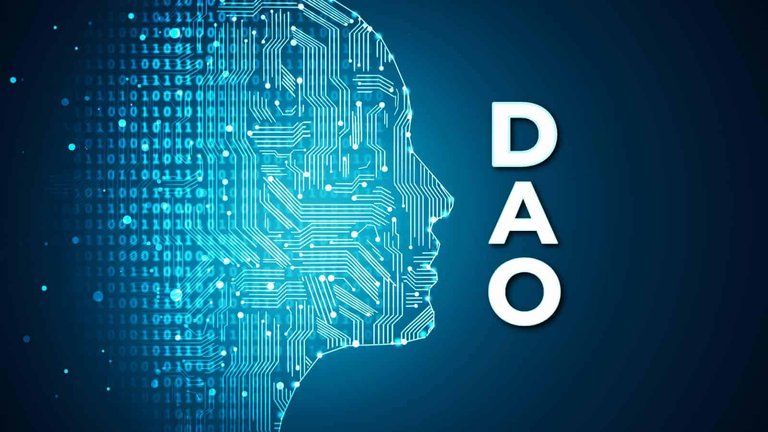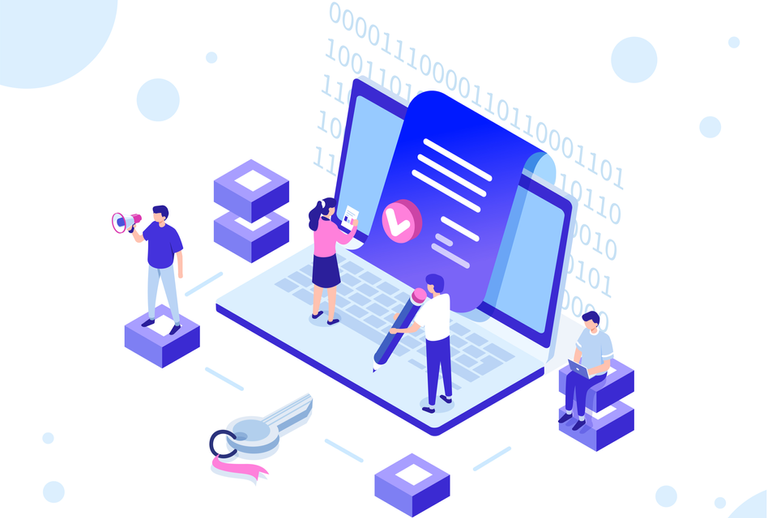Interconnection of Decentralized Autonomous Organizations (DAOs) and Smart Contracts
DeFi and revolutionary blockchain-based use cases are emerging in the space of blockchain. Two major innovations have arisen which are termed as DAOs and smart contracts. Each of these, such as DAOs & Smart Contracts has played a major role in different sectors separately. Nevertheless, by combining these two advancements can completely redefine a new face of business operation. In this post, we’ll discuss how a combination of DAOs and smart contracts change the old model of organization and the new business model.
Understanding Decentralized Autonomous Organizations (DAOs)
DAO is basically an Internet based self-managed, self administrated organization governed by a built in logic. The operation of a distributed administrative system through a blockchain platform. All policies governing a DAO and the regulations in place stem from the related decentralised community around the project. Just like any other organization, DAO has certain mission or mandate which it is structured around.
Governance mechanisms are used to update the business or operational logic of a DAO in the community. Its purpose is meant to be an organizational level of oversight and decision making about where, what and how business or charity will be done.
Understanding Smart Contracts
Blockchain has one of its strongest characteristics in smart contract. A smart contract acts as a digital contract wherein the terms and conditions of an agreement between parties are programmed into computer codes. Smart Contracts, which are essentially small computer programs, may be designed so that they only activate once a group of conditions has been met. Smart contracts operate in decentralized as well as distributed blockchain networks. Blockchains are also interoperable, and as such, users can make payments with smart contracts on cross-platforms.
Many companies try to create enforceable smart contracts which can be implemented within legal systems. Such solutions are probable to be presented in the form of applications of a smart contract interfaces that at the same time produce a plain english defining the contract’s terms document.
Execution of smart contracts may be designed to trigger another smart contract and instantiate new events. Also, smart contracts may include assets, non-fungible tokens, and cryptocurrency holdings. Upon execution of the contract, these assets may be distributed, if certain conditions contained within the contract’s code are fulfilled.
Understanding an Oracle
A reliable third party API which feeds authentic data to smart contracts from the real world and is referred to as a blockchain/oracle. Intelligent contracts interact with the outside world through oracles. In most cases, the smart contract needs to be triggered by an external event. Through oracles, a smart contract can obtain information that represents the result of an off-chain event or elsewhere in the digital world.
To this end, oracles can be designed to send large volumes of data from all corners of the world to smart contracts. For example, data can come from various sources such as real world weather readings, event results, court rulings, statistics on finance, economics, interest rates, market information, data related to vehicles and machines, etc. Even another DAO’s action data may be incorporated in an Oracle. It should be noted that many smart contracts are triggered by predefined conditions, for which purpose, oracles should be used as the authenticated sources of this information.
While some smart contracts may incorporate several oracle to verify a single result or outcome, others are concerned on whether such oracle can be subdued especially if massive amount of money is involved. Data can be streamed in by several oracles for a DAO while different events and purposes can have their own distinct set of oracles.
DAOs and Smart Contracts
Smart Contracts are used for the governance of DAOs. Smart contracts support the basic elements of a DAO. The operations of the group including the DAO’s rule of law and management of the treasury are also defined by smart contracts. These smart contracts contain the DAO’s rules, logic, and regulations. An action will fail if a user attempts to do something not specified by the rules and logic of the code.
On occasions, smart contracts are written to automate part or whole of its logic depending on a predefined action like the cost and availability of a given NFT. In some instances, a smart contract may be triggered to execute after signals have been received via a DAO’s oracle using the sensors or even by human inputs in real world situations. Lately, improvements with regards to IoT and sensors have enhanced the quality of real-time data provided in smart contracts.
A DAO is fed with data via oracles. With this, smart contracts are used in processing the data based on the logic and principles of the DAO before sending out instructions for execution. DAO is a form of company where data flow into the system whereas decisions and instructions are emanating from the DAO company.
In Conclusion
A new decentralized and transparent model for organizing an enterprise is proposed by DAOs. They share in community-based risk and reward through execution of their programs using computational principles. Blockchain relies on smart contracts as one of its most important elements. Smart contracts are electronic documents wherein the actions, logic and provisions of contract between parties are embodied with machine readable rules. Auditability of contracts in real-time is also assured by blockchains. Smart contracts allow the existence of decentralized autonomous organization. Smart contracts capture and execute the code and the logic that will govern every activity and action within a DAO hence without this, there is no capability for broad functionality and flexibility for DAOs.



https://inleo.io/threads/wealthwess/re-leo-curation-2mjctc4ns
The rewards earned on this comment will go directly to the people ( wealthwess ) sharing the post on LeoThreads,LikeTu,dBuzz.